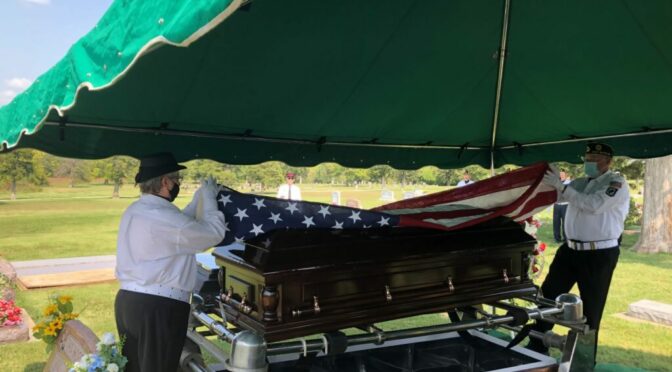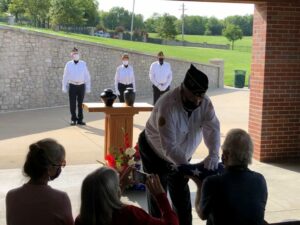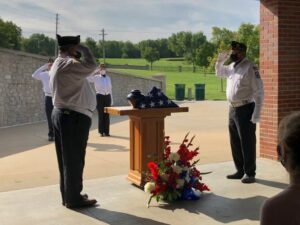‘No Mercy’: What Happens to a Rural Town When Its Only Hospital Shuts Down?
New ‘Where It Hurts’ Podcast From KFF’s Kaiser Health News and St. Louis Public Radio Documents the Economic and Emotional Fallout
Sept. 23, 2020
“No Mercy,” the first season of the new “Where It Hurts” podcast from KFF’s Kaiser Health News (KHN) and St. Louis Public Radio, immerses you in the fallout experienced by one rural town, Fort Scott, Kansas, in the year after its only hospital was shut down by a distant corporate owner.
In losing Mercy Hospital Fort Scott, the community lost not just health care but also one of its largest employers and some of its best paying jobs, sparking tensions, anger and fear for many. Fort Scott’s identity wavered as residents struggled to come to terms with losing the place where their babies were born and kids’ bones were set, and patients with cancer went to get chemo.
Mercy Hospital served as a mainstay of the town for 132 years, and was a constant presence until faltering finances forced its doors to close in December 2018. The town felt abandoned.
KHN senior correspondent Sarah Jane Tribble, who grew up in southeastern Kansas, returns to her roots to ask uncomfortable questions of town leaders and the Catholic nuns who once ran Mercy to find out why the hospital, like so many others in rural America, fell upon hard times and ultimately shut down. Tribble spent more than a year returning again and again to see how the lives of people changed. From a low-income senior who struggles to get to dialysis to the CrossFit-loving town manager and the nurse who became the hospital’s last president, their stories are full of grit and hope. Along the way, Tribble finds that the notion that every community needs a hospital deserves questioning.
The new podcast is a collaboration between KHN and St. Louis Public Radio. Season One: “No Mercy” is the first offering in a new “Where It Hurts” podcast partnership. In future seasons, other storytellers will lead the reporting to highlight overlooked parts of America and show how health system failures can ripple through the social fabric of a community.
Troubles similar to those in Fort Scott are plaguing rural areas all over America. More than 130 rural hospitals have closed over the past decade, including 18 in 2019 alone. These days, the added pressures of dealing with the COVID-19 pandemic have forced even more small, rural hospitals to close their doors for good — 15 in the first eight months of 2020.
“When Sarah Jane shared her reporting on the fallout from a rural hospital closing in her home state of Kansas, I said, ‘Wow, this has to be a podcast,’” said KHN Editor-in-Chief Elisabeth Rosenthal. “I’m so thrilled that St. Louis Public Radio has jumped in wholeheartedly with us to make it happen!”
“We’re proud to partner with the team from KHN to shed light on health care disparities,” said St. Louis Public Radio General Manager Tim Eby. “The powerful stories from ‘Where It Hurts’ will help listeners, no matter where they are, understand the health care challenges facing our nation. These are stories that bring context and humanity and need to be heard by audiences.”
“Where It Hurts” is KHN’s third podcast project and the first to employ a narrative storytelling approach. It debuts Sept. 29, with episodes to be released weekly through Nov. 10, and will be available on major podcast platforms, including Apple Podcasts, Google Podcasts, Spotify, Stitcher, and NPR One. Listen to the “Where It Hurts” trailer and find more information at whereithurts.show. Members of the news media can request an embargoed version of the entire first episode, “It Is What It Is,” by filling out this form.
“Where It Hurts” is St. Louis Public Radio’s seventh podcast currently in production, the most distinguished being “We Live Here” — a two-time international Kaleidoscope Award winner for outstanding coverage of diverse communities and issues.
About KFF and KHN:
KHN (Kaiser Health News) is a nonprofit news service covering health issues. KHN is an editorially independent program of KFF (Kaiser Family Foundation) and, along with Policy Analysis and Polling, is one of the three major operating programs of KFF. KFF is not affiliated with Kaiser Permanente.
About St. Louis Public Radio:
St. Louis Public Radio is an award-winning news organization and NPR member station, providing in-depth news, insightful discussion and entertaining programs to a half-million people per month on air and online. With a large, St. Louis-based newsroom and reporters stationed in Jefferson City and Rolla, Missouri, and Belleville, Illinois, the station’s journalists find and tell important stories about communities across the region and help people become deeply informed about the issues that affect their lives. Broadcasting on 90.7 KWMU-FM in St. Louis, 90.3 WQUB in Quincy, Illinois, 88.5 KMST in Rolla and 96.3 K242AN in Lebanon, Missouri, and sharing news and music online at stlpublicradio.org, St. Louis Public Radio is a member-supported service of the University of Missouri-St. Louis.
Filling the need for trusted information on national health issues, KFF (Kaiser Family Foundation) is a nonprofit organization based in San Francisco, California.





